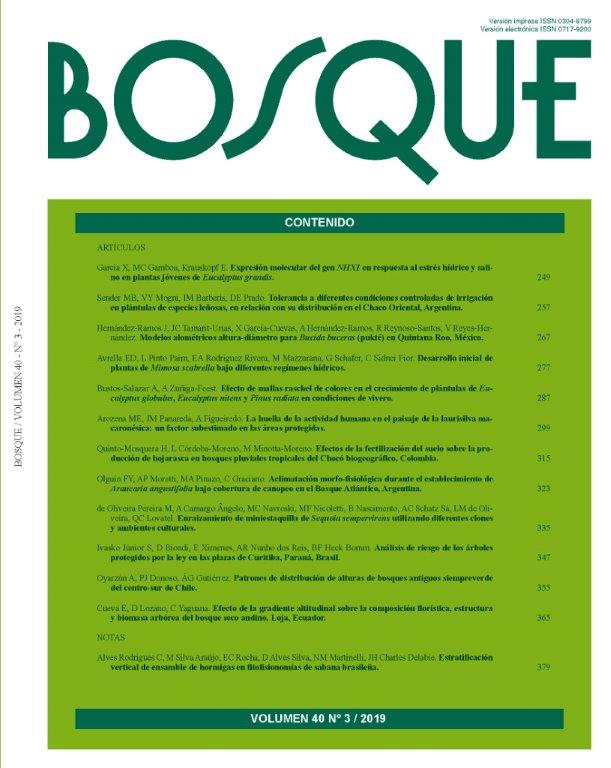Colored raschel mesh effect on growth of Eucalyptus globulus, Eucalyptus nitens and Pinus radiata seedlings under nursery conditions
Main Article Content
Abstract
Forest plantations in Chile represent 2.5 million hectares, with Eucalyptus spp. and Pinus as the most commonly used species. Worldwide, raschel meshes have been used in fruit, horticultural and ornamental shrubs to improve the production of fruits, leaves and flowers. In Chile, it has been operationally used for nursery protocols; they include raschel color mesh to increase shade, which leads to shoot elongation and protection against freezing. However, the possible effect of these colored meshes on the physiological performance of these seedlings is unknown. The objective of this work was to describe the light environment produced by these colored meshes (black, white, blue, green) and to evaluate their effect on growth and physiological performance of Pinus radiata, Eucalyptus nitens and E. globulus seedlings. To evaluate differences among colored meshes, the quality and intensity of light was determined. Seedlings maintained under each mesh were evaluated through the measurement of growth (increasing height of shoots), biomass distribution and vitality (fluorescence of PSII, Fv/Fm). Results show that black and white mesh influences were not selective on their transmittance spectrum and only provided shade (70 % and 50 %, respectively). Vitality measurements did not show damage in seedlings. Seasonal variation on growth was observed, with the highest values during fall and spring for P. radiata and only in spring for both Eucalyptus spp. White mesh promotes higher growth only on both Eucalyptus species, thus it would be recommended for nursery practices.

